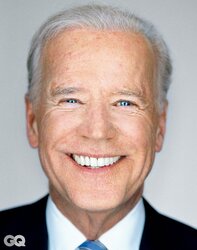
Super Tuesday, explained
 www.vox.com
www.vox.com

Super Tuesday, explained: Sanders and Biden vie for primary delegates…
archived 3 Mar 2020 16:24:26 UTC
Live voting results: https://www.nytimes.com/interactive/2020/03/03/us/elections/live-analysis-super-tuesday.html
Polls close in Vermont and Virginia at 4pm PST/7pm EST, North Carolina at 4:30pm PST/7:30pm EST, Tennessee, Maine, Texas, Alabama, Massachusetts, and Oklahoma at 5pm PST/8pm EST, and in Arkansas at 5:30pm PST/8:30pm EST. Polls close in Colorado and Minnesota at 6pm PST/9pm EST, in Utah at 7pm EST/10pm EST, and in California at 8pm PST/11 p.m. ET.
Joe Biden

Bernie Sanders

Michael Bloomberg

Elizabeth Warren

The first day of the Democratic contest that really matters for the cold, hard delegate math — Super Tuesday — is almost here.
Tuesday, March 3, will be enormously important because it’s the first day that a lot of the delegates necessary to win the nomination are at stake, and the biggest delegate day overall. A total of 14 states and one territory — including California and Texas, the two most populous states in the country — will hold their primaries or caucuses.
Candidates are competing for about a third of the overall delegates at stake. Those 1,344 delegates allocated on Super Tuesday could effectively settle the race, if one candidate locks down a gigantic lead that will be nearly impossible for anyone else to overcome. The candidate with the best chance of doing that is Sen. Bernie Sanders — his current lead in the polls indicates he can theoretically rack up enough plurality wins in a crowded field to clean up in delegates.
But it’s also possible that Super Tuesday’s delegate haul ends up split among several candidates, with no one having gotten anywhere close to being on track for a majority. That may well mean Democrats are headed to a contested convention.
Whether we’re headed for one of these outcomes (or something in between) depends to a significant extent on Democrats’ complicated delegate allocation rules.
Broadly, delegates are allotted proportionally based on candidates’ performance — the better you do, the more delegates you get. But quirks in the rules mean relatively small differences in the exact split of the votes can lead to large differences in delegates.
We’ll get into the nitty-gritty below. The big picture is that if one person ends up with a commanding lead and gets nearly half the delegates, that candidate will become the overwhelming favorite for the nomination. But if the delegate leader has a narrow edge and is well below half of the delegates, a long, close-fought contest will likely ensue.
1) Why is Super Tuesday a big deal?
It’s simple: There are a whole lot of delegates at stake.
The way to win the Democratic nomination is by winning delegates — specifically, winning 1,991 out of 3,979 pledged delegates, enough for a majority to get the nomination at the Democratic National Convention. And there are 1,344 delegates — one-third of the total — up for grabs in Super Tuesday’s contests.
Though there will be several more months of primaries remaining, it’s possible that Super Tuesday can settle the nomination contest. It’s not mathematically possible to reach the “magic number” of delegates yet — but Al Gore in 2000 and John Kerry in 2004 won so convincingly on Super Tuesday that their opponents quit shortly afterward.
Yet Super Tuesday can also pave the way for a very long race. In 2008, Hillary Clinton and Barack Obama ended up nearly tied after an early February Super Tuesday, and they battled it out through four months of remaining contests. In 2016, Clinton locked in a solid advantage over Sanders on Super Tuesday that she never relinquished — but it wasn’t such an overwhelmingly dominant performance as to drive Sanders to quit the race, so he stayed in.
2) Why is there a Super Tuesday?
No one person or group dictates the primary calendar from the top down. The national Democratic and Republican parties have declared that the month of February is reserved only for the four early states — Iowa, New Hampshire, Nevada, and South Carolina. But after that, it’s just up to states to schedule primaries whenever they want between March and June.
Many states that want to influence the outcome of the nomination have calculated that the best way to do that is to go as early as possible: on the first Tuesday in March. (This dynamic has been called “frontloading.”)
Super Tuesday actually began as a plot to help President Jimmy Carter stave off a primary challenge from Ted Kennedy in 1980, as Carter’s strategists got three large Southern states where he was expected to do well to schedule their primaries early. From 1984 through 1992, other Southern states joined in an attempt to give their region more influence (as did a few non-Southern states).
Eventually, big states from elsewhere in the country wanted in, and the first Super Tuesday that truly spanned the nation took place in 2000. That’s been the norm ever since, though the exact lineup varies from cycle to cycle as states move their nominating contests around. (Super Tuesday 2008 is still the record-holder for the number of states and the proportion of the total delegates at stake.)
3) What are this year’s Super Tuesday states?
From most delegates at stake to least, they are:
- California (415 delegates)
- Texas (228 delegates)
- North Carolina (110 delegates)
- Virginia (99 delegates)
- Massachusetts (91 delegates)
- Minnesota (75 delegates)
- Colorado (67 delegates)
- Tennessee (64 delegates)
- Alabama (52 delegates)
- Oklahoma (37 delegates)
- Arkansas (31 delegates)
- Utah (29 delegates)
- Maine (24 delegates)
- Vermont (16 delegates)
- American Samoa (6 delegates)
That’s a lot to get your head around, so it can be helpful to break down the lineup into groups:
- California (31 percent of Super Tuesday delegates): The biggest single prize.
- Seven Southern states (46 percent of the day’s delegates): Like Super Tuesdays of old, this year’s map is skewed toward the South, though it’s a grab bag of very different states from that region — most notably Texas, but also North Carolina, Virginia, Tennessee, Arkansas, Alabama, and Oklahoma.
- The rest (23 percent of delegates): There’s a trio of New England states, Minnesota from the Midwest, Colorado and Utah from the West, and American Samoa.
4) How does someone win Super Tuesday?
In one sense, the way to ensure Super Tuesday delegate dominance is simple — win by a lot, in a lot of places. If Sanders or anyone else manages to do that, they’ll end up with a big delegate lead.
But if most outcomes are closer or if the results are mixed, the delegate situation will be highly contingent on the exact breakdown of the vote, because of Democrats’ complex delegate allocation rules.
Democrats have no “winner-take-all states” (where whoever comes in first place gets all that state’s delegates) — instead, they allot delegates proportionally based on each contest’s results.
That means winning isn’t all that matters: The margin of victory is crucial. A narrow win will barely provide an advantage in the delegate count, because proportional rules mean the second-place finisher usually gets close to the same amount of delegates. But winning in a landslide will provide a big delegate edge.
Beyond that, the devil is in the details, particularly when the field is as large as this one is.
5) Why is the devil in the details?
First off, there’s the threshold: Candidates need to get 15 percent of the vote somewhere to get any delegates there. Those below 15 percent are nonviable and get nothing.
Second, it’s not quite so simple as “30 percent of the vote gets you 30 percent of delegates.” Instead, it’s your percentage of the viable candidates’ vote that matters. Basically, votes for any candidate who’s below 15 percent are excluded, and your percentage of whatever’s left determines your share of delegates.
So let’s say you get 30 percent of the vote, but there are three other viable candidates, getting 25 percent, 20 percent, and 15 percent of the vote. The viable vote adds up to 90 percent, and your 30 percent is one-third of that — so you get one-third of the delegates. Here’s how it would play out under a sample scenario, if there were 10 delegates at stake. (Note: Former South Bend, Indiana, Mayor Pete Buttigieg and Sen. Amy Klobuchar dropped out of the race just before Super Tuesday.)
A very different situation transpires if you get 30 percent of the vote and only one other candidate is viable, getting 20 percent, with the rest of the vote split among several others. The viable vote would then add up to 50 percent. Your 30 percent is three-fifths of that — so you get many more of the delegates at stake.
This means a great deal can depend on the exact breakdown of the vote — particularly in big states with many delegates at stake.
Finally, as if all this wasn’t enough, a candidate’s statewide performance is not all that matters for delegates. The majority of the Super Tuesday delegates (about 65 percent) are in fact allotted based on results in individual districts (mostly congressional districts, except for Texas, which uses state senate districts instead).
Proportional allocation with a 15 percent threshold applies separately in all these districts. That means that if you do well in a state overall but are at 14 percent in a district there, you’ll get zero of that district’s delegates.
Take California. There are 415 total delegates at stake there. But only 144 of them will be awarded proportionally based on statewide results. The other 271 are divvied out according to the proportional results in California’s 53 congressional districts (with 4-7 delegates at stake in each district).
It’s all quite complicated. But all in all, Super Tuesday is a contest to top 15 percent by as much as possible in as many places (states and districts) as possible. Every time candidates get zeroed out by falling below the threshold is bad news for them.
6) So if you get the most delegates, you win, right?
Well, technically, you don’t win the Democratic nomination just by winning more delegates than anyone else. The party’s rules state that you need an outright majority of the 3,979 pledged delegates to win the nomination on the first ballot.
So another key thing to watch for in the Super Tuesday results is whether the delegate leader is on track for an actual majority — or, if not, just how far off track they are from it.
Again, Democrats’ lack of winner-take-all states makes this question very important.
- If a candidate finishes Super Tuesday with 40 percent of delegates so far, he or she needs to win 56 percent of the remaining delegates for a majority.
- If the top candidate has 35 percent of delegates after Super Tuesday, he or she needs to win 59 percent of the remaining delegates.
- If the post-Super Tuesday leader has 30 percent of delegates so far, he or she needs to win 62 percent of the remainder.
So if the leading candidate is significantly off track from a majority after the Super Tuesday delegate haul is locked in, he or she may never get back on track for one — paving the way to a contested convention in which no candidate wins the majority on the first ballot (something that’s never occurred in the modern nomination system).
That’s the theory, anyway. Many believe that in practice, Democrats would face enormous pressure to give the nomination to whoever wins the most delegates, even if that person is short of a majority. The specifics could depend on just how big that first-place person’s lead is, and how close to a majority they end up — which shows why, again, the delegate details of Super Tuesday are crucial.
7) What will happen on Super Tuesday this time around?
Overall, despite all the drama in the Democratic contest so far, it’s important to remember that barely any delegates (just 4 percent of the total) will have been allotted before Super Tuesday.
So while the expectation now is that Bernie Sanders is the frontrunner, and polls appear to back that up, this won’t really be set in stone until we see how he — and everyone else — does on Super Tuesday.
Sanders could, as many now expect, win most states by significant margins and build a sizable delegate lead that will carry him to the nomination. But if there’s a late swing to another candidate — such as Biden, who just won big in South Carolina on Saturday — Sanders could also lose his frontrunner status quite quickly.
For the other candidates who have had more mixed outcomes or little success, Super Tuesday is really do or die. If you don’t get a significant chunk of the Super Tuesday delegates, it becomes all but impossible to get a pledged delegate majority.
Super Tuesday is also the first electoral test for former New York City Mayor Mike Bloomberg, who has spent half a billion dollars on advertising across the country but skipped the four early states. Bloomberg rose in national polls and in polls of Super Tuesday states over the past month, but scrutiny of his past and his rocky performance in the Democratic Las Vegas debate have lately sent his numbers in the other direction.
But the crowded field this year means that, depending on how the ball bounces on March 3, there are several possible outcomes with very different implications for the race. Here are the main ones:
- One candidate emerges with a large delegate lead and on track for the majority: This would mean they’re a commanding favorite to win the nomination.
- One candidate emerges with a large delegate plurality in a split field but is not on track for a majority: This means that person is the favorite to get the nomination eventually, but one or more of their rivals could continue campaigning to try and deprive them of the majority and make things interesting at the convention.
- Two candidates split almost all the delegates: This would likely mean a two-person race going forward, with the outcome up in the air, but likely to be settled before the convention (since it’s extremely likely, in a two-candidate race, that one person ends up with a majority).
- Three or more candidates split delegates, and no one’s on track for a majority: This is the scenario where a contested convention would be most likely.
If one candidate does end up winning almost everywhere, that might not be such a big deal. But in this nomination contest so far, it’s usually prudent to expect that things could get messy
------------------------
Super Tuesday looks to be interesting with Klob and Mayor Pete dropping out, I imagine Biden and Bloomberg will pickup most of those delegates. Looks to be lots of fun.
Polls: https://www.realclearpolitics.com/epolls/latest_polls/democratic_nomination_polls/
CNN interviews with all the candidates from last night:
Michael Bloomberg

Bloomberg says Biden isn't viable: He's a legislator not a manager
Democratic presidential candidate Michael Bloomberg says that Joe Biden isn't a viable presidential candidate because the former Vice President is a legislat...
Elizabeth Warren:

Warren on coronavirus: We should have acted weeks ago
Democratic presidential candidate Sen. Elizabeth Warren (D-MA) speaks with CNN's Don Lemon on the eve of Super Tuesday about how she would combat the global ...
Bernie Sanders:

Sanders: The current healthcare system is 'pathetic'
Democratic presidential candidate Sen. Bernie Sanders talks to CNN's Anderson Cooper ahead of Super Tuesday voting. #CNN #News
Joe Biden:

Joe Biden on Bernie Sanders: People don't want a revolution. They want results
Democratic presidential candidate Joe Biden speaks to CNN's Anderson Cooper ahead of Super Tuesday voting. #CNN #News
My super tuesday choices:
Alabama(Biden), Arkansas(Biden), California(Bernie), Colorado(Bernie), Democrats Abroad(Biden), Maine(Biden), Massachusetts(Biden), Minnesota(Biden), North Carolina(Biden), Oklahoma(Biden), Tennessee(Biden), Texas(Bernie), Utah(Bernie), Vermont(Bernie), and Virginia(Biden)
Update: All but Texas I got correct, based. I forgot American Samoa but that's tribes of people and my guess is as good as any. Democrats abroad takes a week to trickle in.
Last edited:








